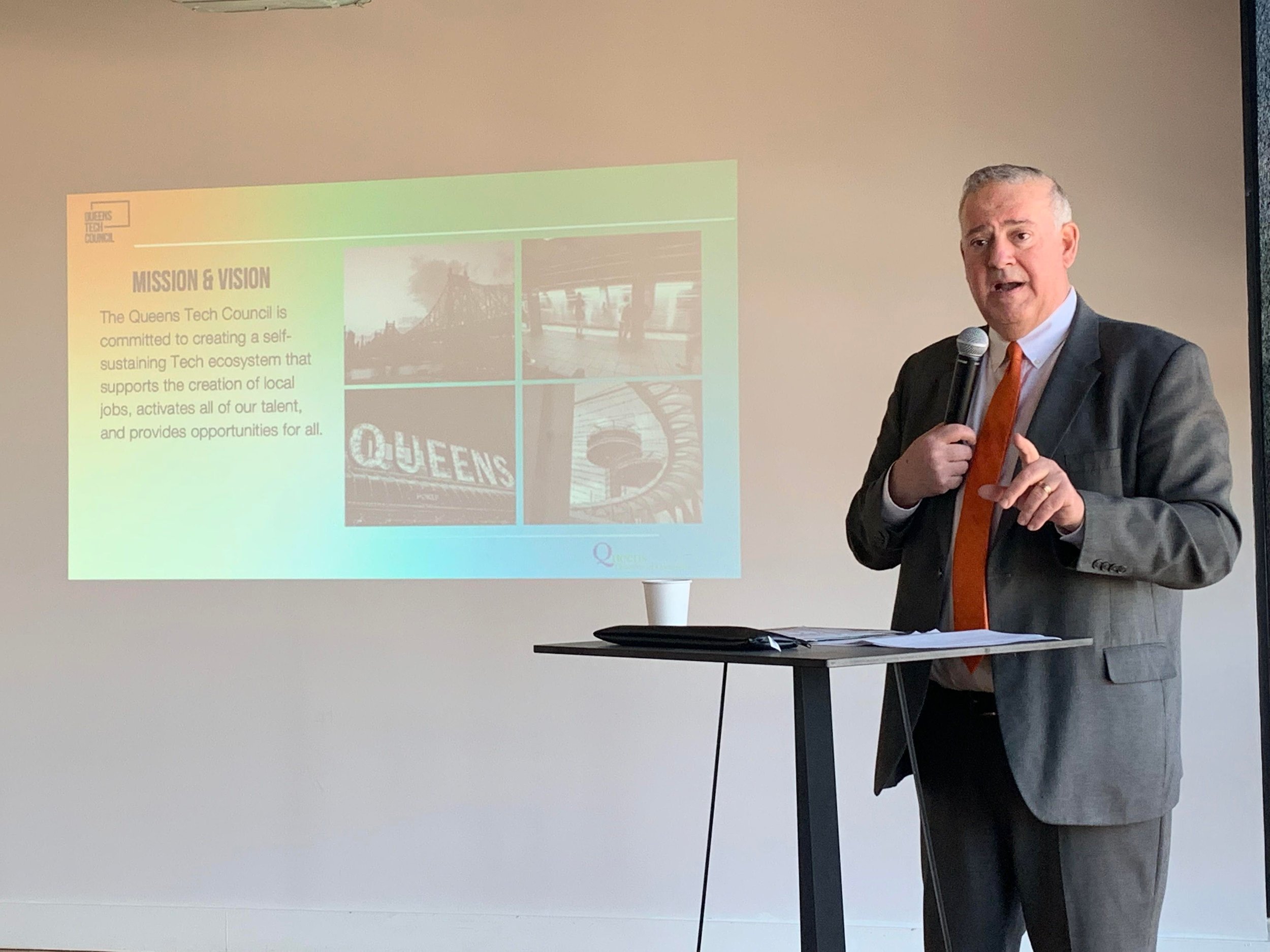Opinion: The cost of congestion pricing
/Tom Grech is the president and CEO of the Queens Chamber of Commerce. File photo via QCC
By Tom Grech
With the implementation of congestion pricing just a year away, the region is slowly coming around to the impact it will have on passenger vehicles, with additional tolls that could be anywhere from $9 to $23. But the impact on the business community – and consumers – has not yet been fully articulated and understood.
With proposed rates for trucks ranging from $12 to as high as $82, businesses around the region are bracing for higher costs, which will inevitably be passed on to their customers.
Businesses within Manhattan’s central business district are inextricably linked to businesses in the outer boroughs, New Jersey, Westchester, Long Island and beyond. The bodegas, restaurants, pharmacies and clothing stores around the corner from midtown offices are stocked by goods that were probably shipped from outside the neighborhood and arrived on a truck. The plumbers, electricians and maintenance personnel who keep office buildings running smoothly are likely based outside of the neighborhood too, and need equipment to do their jobs that is too cumbersome to schlep on the 7 train.
New York is already one of the most expensive places to run a business. Small businesses cannot simply eat these additional costs. If congestion pricing moves ahead as planned, the cost of goods and services will skyrocket. Working families have dealt with the impacts of the pandemic and inflation in recent years.
Asking consumers to pay more for the cost of their morning coffee, lunch, dinner, entertainment and more, in what is already one of the most expensive places to live in the world, isn’t just unfair, it puts the economic future of our region in jeopardy. This is especially concerning at a time when we’re encouraging more people to return to the office full time.
This isn’t to say that congestion pricing does not have admirable goals.
Parts of Queens, and other areas in the outer boroughs, are true transportation deserts. We need to find a long-term funding source to improve the MTA. A stronger mass transit system will help small businesses throughout the city.
There are several things we can do to ensure that we adequately fund the MTA in a way that is fair to small businesses and their customers.
First of all, let’s tackle fair evasion, which costs the MTA nearly $690 million each year. Fare evaders steal from all of us, no matter our financial status or theirs. It needs to stop. The current fare evasion fine is $100. We propose that it be tripled to $300 and be more than just an appearance ticket. And enforcement needs to greatly expand.
There ought to be no exemptions for congestion pricing for any group or organization. Period. We need to raise a billion dollars to fund the MTA, and every exempted group forces the rest of us to pay more. Every segment of our society is inextricably woven into the fabric of New York. We’re all in this together, so let’s all pay something. That something ought to be $10 per vehicle per day. Current projections show that currently 700,000 vehicle trips are made every day, meaning this charge will be able to raise significant revenue.
To encourage more people into New York City for the entire business week we can eliminate all fares on MTA Metro North, LIRR, NYC bus and subway on Mondays and Fridays for a twelve month trial period. I’d be willing to bet we’ll see a positive impact on office occupancy, sales tax revenue and general business activity.
We can do this, but we need to do it in a way that is fair. MTA Chair Janno Lieber has shown himself to be an effective leader and manager of the system, and willing to listen to the concerns of the authority’s many stakeholders.
We hope that he’ll hear the concerns of small business owners and consumers, and ensure they don’t shoulder a disproportionate share of the burden for fully funding the MTA.
Tom Grech is the president and CEO of the Queens Chamber of Commerce.




